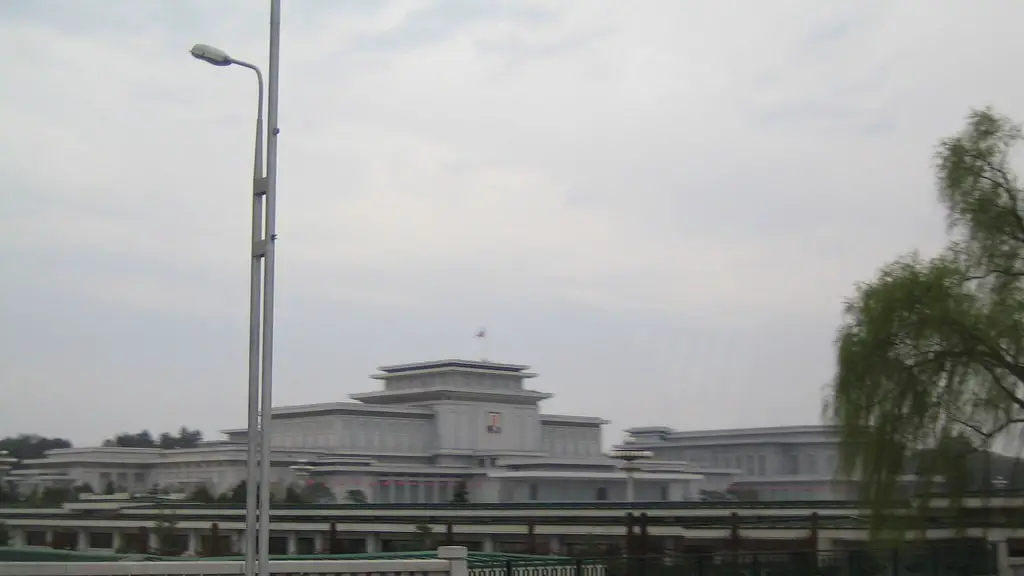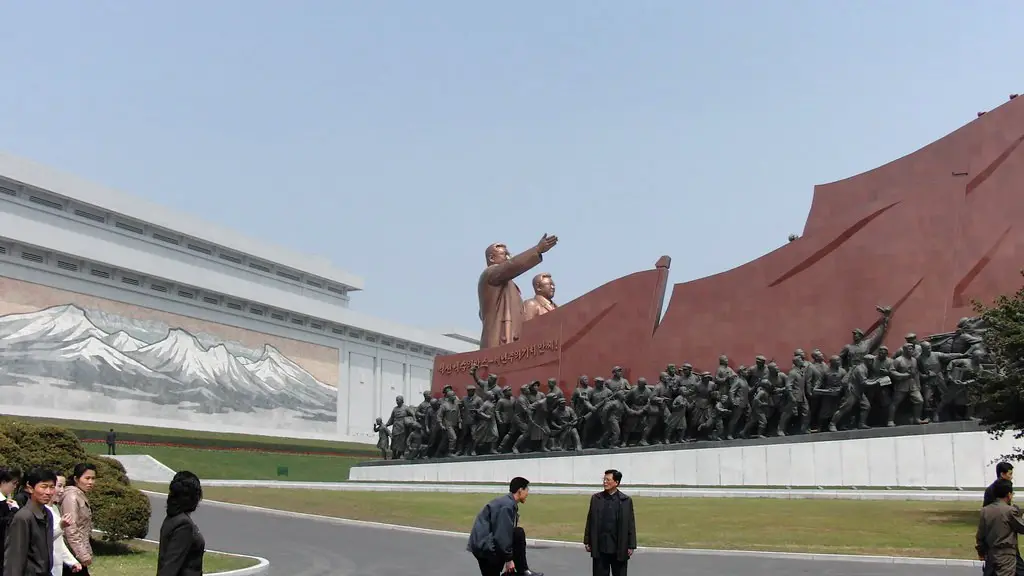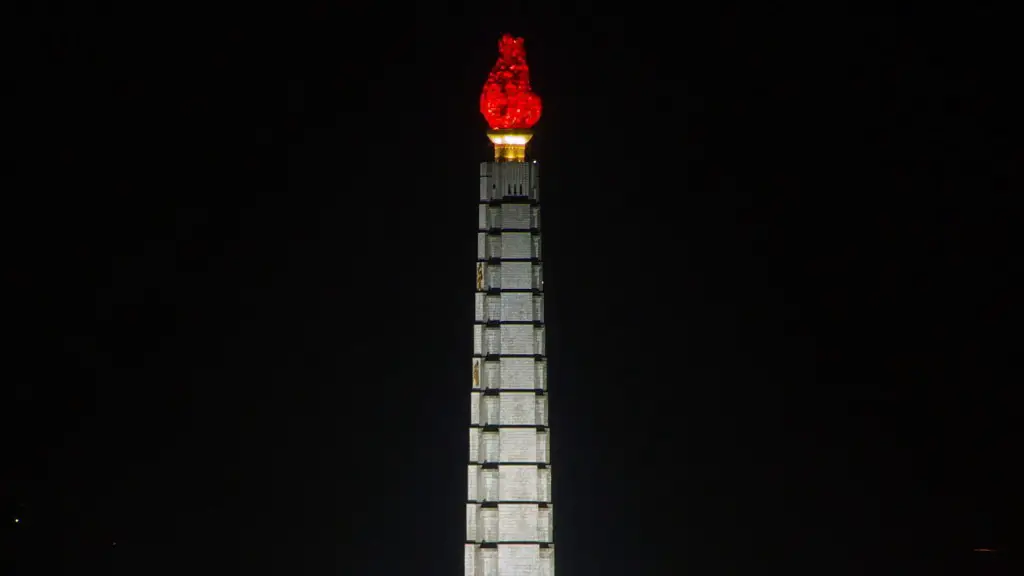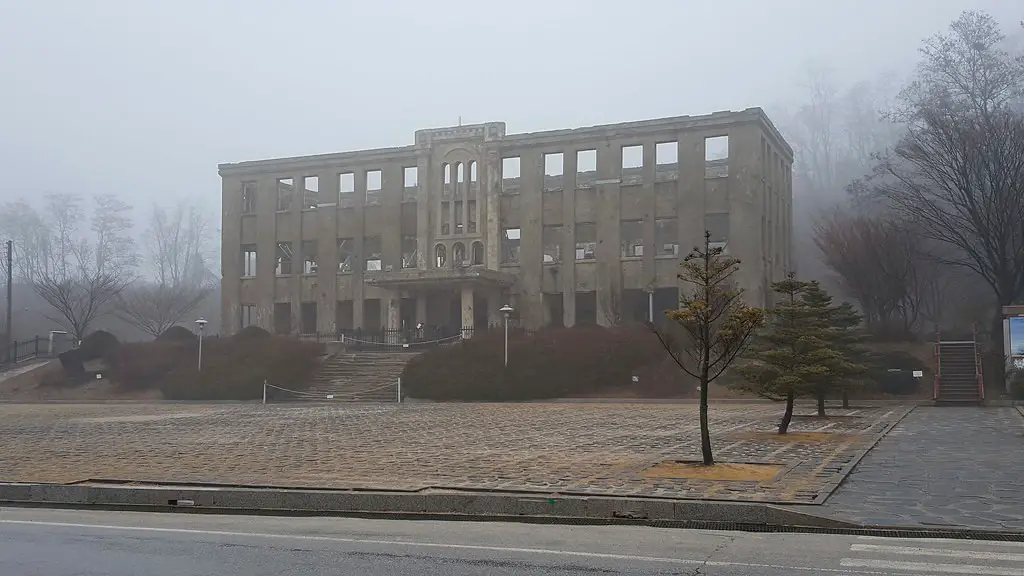North Korea is considered to be the most isolated nation on earth and is subject to the toughest sanctions worldwide, but why can you not leave the country and what are the repercussions of doing so? The answer lies in the ruthless Kim family’s control over the population and their hardline ideologies that make it difficult for individuals to leave the country.
North Korea operates a closed-border policy, which makes it impossible for anyone to leave the country without permission from the authorities. It is virtually impossible for the people inside the country to get permission to leave and any attempts to do so are discouraged by the government. This means that the only people who are able to leave the country are those who are sent abroad as representatives of North Korea or those with assistance from other countries.
Anyone who attempts to leave North Korea without permission is subject to harsh penalties such as exile or imprisonment, often without trial. In some cases, individuals have faced the death penalty for trying to leave the country. The government is also known to use fear tactics to discourage would-be defectors, warning that anyone who tries to leave would be killed or that their family would be punished.
In addition to the risk posed by the government, leaving North Korea is also problematic due to the country’s lack of a proper passport system. Even if you were able to get permission to leave, it is almost impossible to obtain a travel document from North Korea’s government. As a result, many North Koreans try to leave the country illegally, often by crossing over to a neighbouring nation such as China. Unfortunately, many of these refugees are then arrested and sent back to North Korea, where they may face punishment.
Defectors who manage to make it out of the country may also face poverty and discrimination once they have reached their destination. North Koreans often do not have the skills or language proficiency to find work or earn an income in the new country and as a result, many are forced to live in poor conditions. Some defectors also face discrimination from locals who are suspicious of North Koreans or view them as uneducated, selfish people.
Living in North Korea can be difficult, but attempting to leave is fraught with danger. It is clear that North Korea is one of the most oppressive countries in the world, and one whose citizens find it difficult to escape. Those who do manage to defect need to be aware that life outside of North Korea may not be any easier.
Life Within North Korea
Living in North Korea is not easy. Citizens of the Hermit Kingdom are subjected to oppressive government regulations and restrictions, including strict controls on their movements and speech. The government controls much of the country’s resources, including food and energy, and citizens are not allowed to travel without permission. The government also controls access to information and news, with only state-approved media sources available to the general population.
There is a deep mistrust and fear of outsiders among the North Korean population. This is largely due to the country’s history and its current leadership, which have done much to cultivate an us-vs-them mentality among its citizens. This is made worse by the Propaganda Machine, which is constantly churning out stories that vilify and demonize those from outside the Hermit Kingdom.
Furthermore, North Koreans often face discrimination and marginalization from the rest of the world. This is due to their government’s reputation for human rights abuses, their history of aggression, and their lack of open and accountable relationship with the international community. All of these factors make it difficult for North Koreans to find work, travel, and even receive international aid.
For all of these reasons, life within North Korea can be difficult and scary. The oppressive regime is all-consuming and the lack of access to information or help from the outside world makes it difficult for individuals to gain a foothold. This makes it even more difficult for individuals to make the decision to leave the country and start a new life elsewhere.
Economic Situation in North Korea
The economy of North Korea is one of the least developed in the world and is heavily reliant on foreign aid. This has resulted in severe poverty and shortages of food, fuel, and other necessities. Most North Koreans rely on the government-sanctioned Public Distribution System to acquire food and other resources. This system is highly inefficient and often leads to food shortages and long waits for rations.
Although the economy is largely centralized, some private markets have been allowed to grow, albeit slowly. As of 2018, less than 2% of North Korea’s GDP is derived from the private sector. The government also imposes restrictions on wages, which often leads to spiralling prices and rampant corruption.
The economic situation in North Korea makes it even harder for citizens to escape the country. With little economic prospects and the prospect of harsh punishment if they are detected, few North Koreans attempt to leave the country.
Moreover, with no form of currency exchange, North Koreans are unable to take out large sums of money to support themselves in the new country and are often left to beg for food or work to survive. This puts additional pressure on individuals to remain in North Korea, despite the hardships they face.
Human Rights Abuses in North Korea
North Korea’s history of human rights abuses is well-documented. Over the years, the country has been accused of numerous atrocities, including torture, forced labor, and starvation. Estimates suggest that up to 120,000 political prisoners are held in the country’s labour camps, where they suffer brutal treatment.
In addition, hundreds of thousands of North Koreans have been placed in detention or sent to political prisons without access to legal protection. Reports have also emerged of public executions, starvation, and sexual abuse, all of which have been used as a means of control.
The risk of human rights abuses is a major factor in why people choose not to leave North Korea. Defectors are often in fear of being discovered and arrested, which could lead to torture and death. This fear is compounded by the fact that North Korea’s government is known for its lack of adherence to international laws and norms.
This makes it difficult for those who are seeking to leave North Korea to secure assistance from other countries. As a result, defectors often resort to leaving the country illegally, which can be dangerous and can lead to further human rights abuses.
North Korean Refugees
In spite of the difficulties and dangers, an increasing number of North Koreans are attempting to flee the country. According to the United Nations High Commissioner for Refugees, as of 2018, approximately 30,000 North Koreans had successfully made the journey to South Korea, while hundreds of thousands have sought refuge in China and Southeast Asia.
Although the number of refugees is still relatively small compared to other nations, the increasing number of North Koreans attempting to flee the country is a sign that things are slowly changing. There is hope that with increased awareness and support, more and more people will be able to escape the oppressive conditions in North Korea.
Defectors who do manage to make it out are often in need of assistance and support. Many refugee agencies and non-profits work to provide assistance to those who have been able to safely escape the country. Additionally, there are many organizations and networks dedicated to helping North Korean refugees adjust to life in the new country, providing legal advice and assistance as well as providing access to education and employment opportunities.
North Korea’s Nuclear Program
North Korea’s nuclear weapons program has been a major source of tension in the Asia-Pacific region for decades. The country has repeatedly violated international agreements and defied global pressure in its pursuit of nuclear weapons. As of 2018, North Korea is estimated to possess at least 15 nuclear warheads and has conducted six nuclear tests since 2006.
The fear of a nuclear-armed North Korea has led to harsh economic sanctions being imposed by the United Nations, which has further exacerbated the country’s economic woes. These sanctions have effectively cut off the country from the rest of the world, making it difficult to access much-needed resources and further complicating the lives of North Korean citizens.
The prospect of a nuclear-armed North Korea has also made it more dangerous to attempt to escape the country. North Korean authorities often use this fear as a deterrent to keep citizens from attempting to leave, citing the danger of nuclear strikes against South Korea and Japan as a potential consequence of anyone trying to escape.
The dangers posed by North Korea’s nuclear weapons program also make it harder for other countries to accept and assist refugees. For example, South Korea is often reluctant to accept resettled North Korean citizens due to the security threats posed by the country’s nuclear arsenal.
The nuclear situation and the international sanctions that have been imposed on the country have also made it difficult for refugee agencies to secure necessary funds and resources to provide assistance to North Korean refugees. This puts additional strain on those who are attempting to escape North Korea and leaves them struggling to survive.




